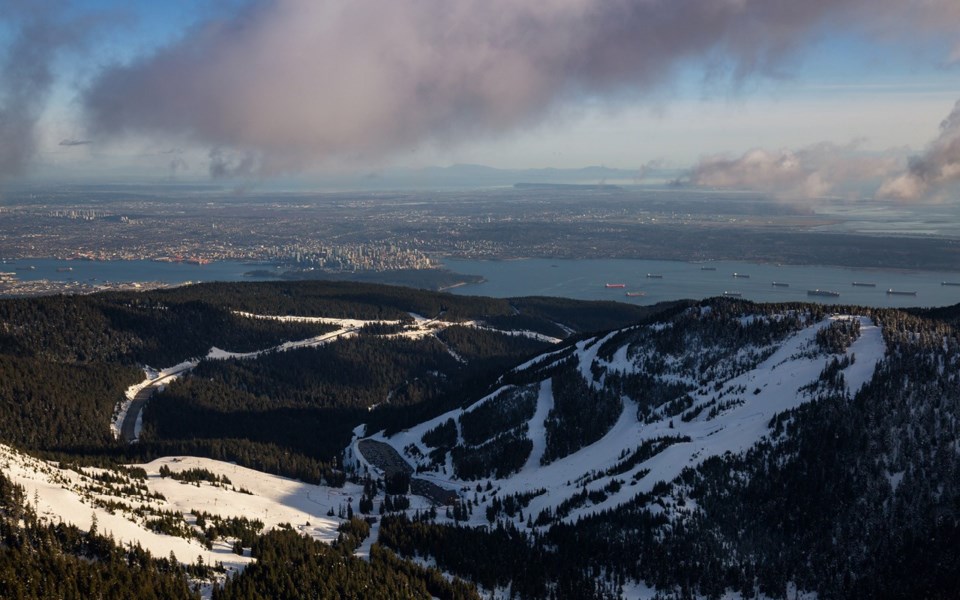Ever wonder how climate change is changing B.C. and Alberta's vast mountain ranges?
A new report from The Alpine Club of Canada (ACC) aims to shed some light on that question by highlighting the research of academics whose work lies at the intersection of climate change and mountain life.
Written for the general public, the State of the Mountains Report includes a feature article on the impact that melting glaciers are having on river systems, as well as "knowledge highlights" on a wide-range of relevant topics, from mountain birds to changing forests.
"(Mountains) are one of the regions of Canada that are going to show the impact of climate change most dramatically," said Lael Parrott, a professor of sustainability at the University of British Columbia (UBC) who served as an editor on the project.
Parrott, who is also on the board of directors of the ACC, said the plan is to release a State of the Mountains Report annually, giving the broader public a deeper understanding of mountain environments.
"Having more Canadians appreciating our mountain environments will mean greater public support for any government support related to conservation for the environment," she said, adding that the aim falls in line with the ACC, which has a mandate of promoting awareness of mountain science and conservation.
For this year's project, Parrott worked with two other editors, selecting "really cool work" that spoke to the theme of climate change.
One of the topics tackled is on how climate change will affect B.C. ski resorts.
The article features a number of interesting charts, including one that looks at temperature change at Cypress Mountain Resort for the period of 1901 to 2015.
Though the data points appear scattershot—illustrating year to year variability and weather oscillations—the best-fit trend line betrays an undeniable fact: That the mountain has seen a warming trend in mean temperature of about 1.5 degrees Celsius.
An important data point to look at is for the 2014-15 ski season, an awful ski year that saw "virtually no ski season" and an average temperature of around 1.5 degrees Celsius, explained Michael Pidwirny, an associate professor at UBC Okanagan who co-authored the article.
The warm temperature will likely become the new norm by 2055, he said.
Another graph, which draws on climate models developed by the Intergovernmental Panel on Climate Change, lists average predicted temperatures for the last third of the 21st century (1971 to 2100).
Under the best-case scenario, which correlates to a warming of the Earth's surface globally of about two degrees, Cypress and Hemlock mountains will likely be too warm to support skiing by the end of the 21st century, and Whistler's mean winter temperature will rise from -6 to -2 degrees Celsius.
"Whistler will gradually change—it can't escape the fact that there will be warmer winters," said Pidwirny.
Under the worst-case scenario, where greenhouse gas emissions continue to increase exponentially and average global temperature rises between three and five degrees, the results would be far grimmer.
All coastal ski resorts will be untenable from an economic standpoint, read the report.
The year-to-year variability will present major challenges to the resort operators, explained Pidwirny.
"Say you have seven bad years out of 10. It's going to be highly unlikely (Whistler Blackcomb) will be able to support change like that."
"How do you plan? You have to hire in November, and you have no idea if it's going to be a cold or a warm winter."
Interior resorts will also face increases in temperature, though the changes will be less severe, according to the data presented in the report.
Under the best-case scenario, the winter mean temperatures of interior ski resorts will rise by about two to three degrees above 1981 to 2010 levels, and under the worst-case scenario it would rise by four or five degrees Celsius.
In the end, said Pidwirny, the extent of the problems will depend on whether governments take concerted and focused action on climate change.
But is he optimistic that will happen?
"Absolutely," he said. "Nations are scrambling to figure out how to implement this reduction in greenhouse gas emissions, and it's not that hard," he said, pointing to nations like Germany and Denmark as being way ahead of the curve.
Pidwirny believes major environmental events, like the melting of the polar ice cap and glaciers or long-lost ski areas, will quantify climate change for the public, forcing leaders to take actions.
Parrott, who leads a research project that models and characterizes contemporary regional landscapes and ecosystems, also struck a note of optimism when discussing the future.
A big take away for her is the need for conservation, to set aside places for the wilderness to thrive.
"The mountain environment is resilient, and it will adapt and change in response to climate change," said Parrott. "So long as our mountain ecosystems aren't stressed because of other human activities, they will adapt and be resilient."
The State of the Mountains Report is available on the Alpine Club of Canada's website: https://www.alpineclubofcanada.ca/web/ACCMember/Community/Publications/State_of_the_Mountains_Report/ACCMember/Community/Publications/State_of_the_Mountains.aspx




